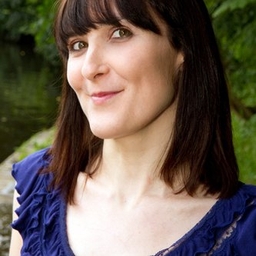
Julie Penfold
Health Journalist at Freelance
Freelance journalist specialising in everything health-related. Usually recovering from a sports injury. Likes to run and swim. Sunderland fan.
Articles
-
2 weeks ago |
medscape.com | Julie Penfold
Artificial intelligence (AI) scribing tools are increasingly being used in NHS settings to enhance patient care and free up staff time. In April, the Department of Health and Social Care announced support for NHS doctors to adopt AI tools that “bulldoze bureaucracy,” allowing clinicians to focus more on their patients and less on documentation. This follows a multi-site evaluation led by Great Ormond Street Hospital for Children, London, England, and funded by NHS England.
-
3 weeks ago |
rarerevolutionmagazine.com | Julie Penfold
Written by Julie Penfold, RARE Revolution insiderInterview with Vidmantas Šakalys, chief executive officer, Vital 3DEstimated reading time: 6 minutesVidmantas Šakalys is chief executive officer of Vital 3D, a Lithuanian biotechnology company that is working towards its long-term goal of printing a kidney in 24 hours.
-
1 month ago |
tomsguide.com | Julie Penfold
If you’ve ever wondered why you sleep better some nights rather than others, your hormones might be the culprit. From renowned sleep hormones such as melatonin to lesser known ones, our sleep hormones help us to thrive and reset at the right times each day. They play a crucial role in the sleep-wake cycle, helping us wind down in the evening and wake feeling refreshed and ready to go.
-
1 month ago |
medscape.com | Julie Penfold
The toll of rotational training and uncertainty over first jobs may drive more future doctors to abandon medicine altogether, experts have warned. For the Hospital Consultants and Specialists Association (HCSA), which represents hospital doctors, these contribute to what it describes as “an ongoing mental health crisis” among resident doctors. “It can be very lonely and very bleak at times,” explained Dr Matt Church, chair of the HCSA’s resident doctors committee.
-
2 months ago |
medscape.com | Julie Penfold
UK Biobank has confirmed to Medscape News UK that NHS England is conducting audits on its systems. The checks could pave the way for anonymised primary care data from GPs to become available via the biomedical database. The audits include a review of the consent process for participants and whether access to GP data covers that consent. A separate cybersecurity audit of UK Biobank’s systems, focused on accessing GP patient data via the platform, is also underway.
Try JournoFinder For Free
Search and contact over 1M+ journalist profiles, browse 100M+ articles, and unlock powerful PR tools.
Start Your 7-Day Free Trial →X (formerly Twitter)
- Followers
- 1K
- Tweets
- 5K
- DMs Open
- No